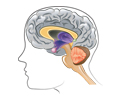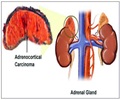Phobia is an anxiety disorder characterised by extreme and irrational fear of simple things or social situations. Psychologists do not know exactly what causes this
Phobia is an anxiety disorder characterised by extreme and irrational fear of simple things or social situations. Psychologists do not know exactly what causes this.
To overcome this scientists have developed a new treatment, which is still in the trial stage.The remedy developed by a Swiss-led research team contains a human hormone called cortisol, which the body produces naturally in times of stress or fear to help subdue the panic response, reported the online edition of Nature.
Previous studies have shown that increased levels of cortisol help us to blank out painful memories and emotions, allowing us to deal more effectively with stressful situations.
Phobics may have a naturally low cortisol level, which means that the first time they encounter a spider or have to stand in front of an audience, they develop an intense fear that then preys on their mind, researchers said.
And if natural cortisol defences are low, this could prevent someone forming non-panic reactions on subsequent exposure.
Researchers led by Dominique de Quervain of the University of Zurich studied whether artificially increasing levels of cortisol can help phobics overcome the paralysing fear that they feel when faced with the source of their anxiety.
Advertisement
Participants who took cortisol reported significantly less fear, on a scale of 0 to 10, than those given a placebo.
Advertisement
--Edited IANS











